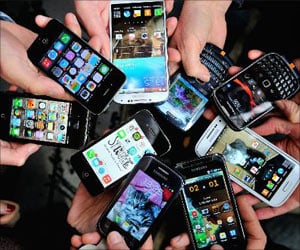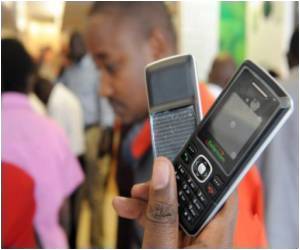Mobile phones are full of bacteria, and scrolling in the bathroom may be a major contributor.
- Mobile phones can be an excellent source of infections
- It is recommended to clean your phone daily
- Do not use abrasives and bleach; instead, use alcohol-based wipes and sprays
Your Toilet Seat is Cleaner than Your Phone
Research has shown that most people in the UK use their phones on the toilet. So, it’s not a shocker that studies have found our mobile phones to be dirtier than toilet seats (1✔ ✔Trusted SourceHigh level bacterial contamination of secondary school students' mobile phones
Go to source).
We hand our phones over to kids, who aren’t really the most hygienic. We put our phones down on all sorts of surfaces, we even eat with our phones. All these things can transfer microbes onto your phone along with food deposits for those microbes to eat.
Studies show that people touch their phones hundreds if not thousands of times a day. Most of us usually wash our hands after cooking, cleaning, using the washroom, or gardening. But most of us don’t give a thought to washing our hands after touching our phones. Considering how disgusting and germ-infested our phones are, it might be time to reflect on mobile phone hygiene.
Phones are an Infection Machine in your Pocket
Our hands pick up bacteria and viruses all the time and are recognized as a route for infection. This includes the phones we touch.Numerous studies on the microbiological colonization of mobile phones have demonstrated that they can harbor a wide variety of potentially pathogenic bacteria.
Our phones can be a home for diarrhea-inducing E. coli and the skin-infecting Staphylococcus, as well as Actinobacteria, which can cause tuberculosis and diphtheria, Citrobacter, which can lead to painful urinary tract infections, and Enterococcus, which is known to cause meningitis.
Klebsiella, Micrococcus, Proteus, Pseudomonas, and Streptococcus have also been found on phones and all can have equally nasty effects on humans.
Could your Phone Kill you?
According to research, many bacteria on phones are frequently antibiotic-resistant, making it impossible to treat them using conventional medications. This is concerning since these bacteria can cause potentially fatal infections of the skin, intestines, and lungs.Studies have also found that even if you clean your phone with antibacterial wipes or alcohol it can still be recolonized by microorganisms, indicating that sanitization must be a regular process.
Phones are made of plastic, which can harbor and spread viruses, some of which can survive for up to a week on hard plastic surfaces. Other viruses such as COVID-19, influenza, and norovirus can cause serious respiratory and stomach infections that can persist in an infectious state for many days.
Thanks to the COVID-19 pandemic, the US Centre for Disease Control and Prevention has introduced guidelines for cleaning and disinfecting mobile phones which, along with door handles, cash machines, and lift buttons, are considered reservoirs of infection (2✔ ✔Trusted Source
When and How to Clean and Disinfect Your Home
Go to source).
Concerns have been expressed, in particular, about the role that mobile phones can play in the spread of infectious germs in hospitals and healthcare settings, as well as in schools.
The When and How of Cleaning your Phone
It has been established that cleaning your phone regularly is imperative.Daily Sanitation of Your Phone is a Must
The US Federal Communications Commission actually recommends daily sanitation of your phone and other devices because pathogens can survive for several days on hard plastic surfaces.
Use Alcohol-Based Sprays and Wipes
Wipes or sprays containing alcohol should be used. To disinfect phone casings and touch screens, they must contain at least 70% alcohol and should be done every day if possible.
Say No to Abrasives and Bleach
Sanitizers should not be sprayed directly onto the phone, and liquids should be kept away from connection points and other phone openings. Avoid using bleach or abrasive cleansers at all costs. After you've finished cleaning, thoroughly wash your hands.
How to Avoid Turning your Phone Into an Infection Hub
Thinking about how you handle your phone can also help prevent bacteria from colonizing it. When you're not at home, keep your phone in your pocket or bag and use a disposable paper to-do list instead of constantly using your phone. Use clean hands that have been cleaned with soap and water or disinfected with an alcohol-based hand sanitizer to touch your phone.There are additional measures you can take to keep your phone from being a virus source. If you have an infection or have not sanitized your phone, do not share it with others. If your phone is handled by children, disinfect it as soon as possible afterward.
Also, make it a habit to put your phone away when not in use, then sanitize or wash your hands. When you are cleaning your phone, you should also sanitize your phone charger.
References:
- High level bacterial contamination of secondary school students' mobile phones - (https://pubmed.ncbi.nlm.nih.gov/28626737/)
- When and How to Clean and Disinfect Your Home - (https://www.cdc.gov/hygiene/cleaning/cleaning-your-home.html)
Source-Medindia












